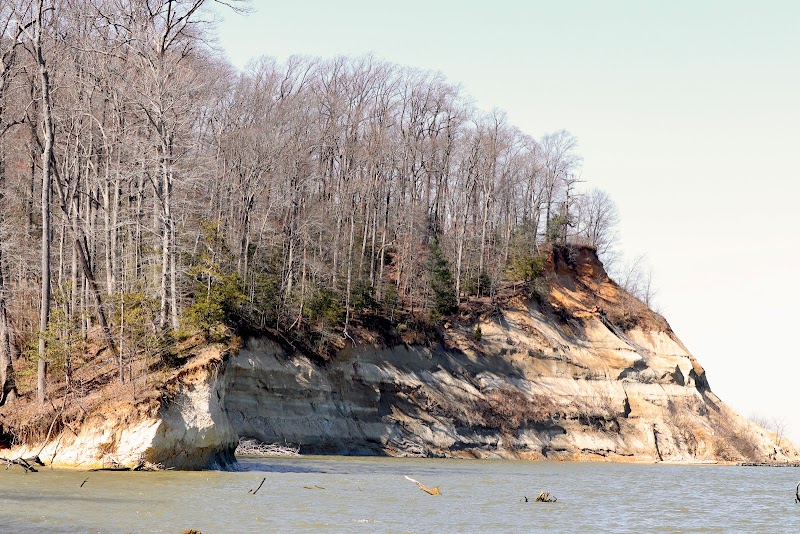
Westmoreland State Park Adventures
Westmoreland State Park offers abundant opportunities for outdoor recreation with its striking cliffs, beach access, and panoramic vistas over the Potomac River.
Popular Activities
Exploring the Enchanting Backdrops of Westmoreland State Park
In the heart of Virginia, among the shifting contours of the Potomac River, lies Westmoreland State Park, a realm crafted by nature's artistry and time's gentle erosion. It invites wanderers, explorers, and photographers to embark on a journey both thrilling and introspective. The park's landscapes, marked by rugged cliffs, sinuous waterways, and verdant forests, create scenes ripe for the capture—perfect for those aspiring to immortalize the splendor of the natural world through the lens of a camera.
As you set foot on the park's sun-dappled trails, a sense of adventure whispers with each step, its echoes reverberating through the leafy canopy above. The trails, crisscrossing with varying degrees of difficulty, guide you through diverse topographies, from the moss-carpeted paths of the forest to the high bluffs offering sweeping vistas of the river below. The 1,299 acres of protected land present a playground for both amateur shutterbugs and seasoned photographers looking to capture elemental drama.
For the landscape photographer, Westmoreland's steep bluffs become a stage at sunrise and sunset. The golden hues of an awakening day spill across the cliff faces, while day’s end bathes them in a blaze of ocher and pink, offering photographers the perfect tableau to capture nature’s transient beauty. Practical tip: arrive early to secure your spot, as these prime locations can often attract fellow enthusiasts during peak hours.
Your camera will find plenty to celebrate in addition to the sprawling landscape. The park's diverse ecosystems support a variety of wildlife, from the grace of egrets gliding over the park's waters to the occasional deer grazing in the shadows of towering oaks. Capturing these creatures in their habitat requires patience and a keen eye—traits just as critical as the right equipment. A telephoto lens is recommended to encapsulate the subtle details without intruding on the scene.
Shutter speeds and aperture settings may adjust dynamically as you switch focus from vivid woodlands to rocky shores. The park borders the Potomac River, where the dynamic interplay of land and water crafts unique compositions—ideal for those aiming to convey motion and fluidity in their work. Remember to wield your camera with respect for the unpredictable ebbs and flows of nature, protecting your gear from water spray and sudden changes in weather.
When you seek to blend the thrill of climbing with the artistry of photography, the cliffs along the Potomac present a unique challenge and reward. The rugged terrain, with its mix of cracks and ledges, beckons climbers to ascend and capture perspectives unseen from the ground. The local climbing areas, with varying routes catering to diverse skill levels, demand the right gear for both safety and successful documentation of the ascent—think robust harnesses and sticky-soled shoes.
As the camera’s eye celebrates the natural beauty, practical preparation ensures the journey remains safe and enjoyable. Adequate hydration, nutritious snacks, and durable footwear are all essentials for tackling the park’s trails. The rhythm of footsteps on earth, the song of the wind through branches, and the rustle of leaves are the soundtrack to your adventure in Westmoreland State Park, filling the narrative of discovery with personal notes.
In choosing this verdant sanctuary as your backdrop, you embrace the dance of light and shadow, the conversation between terrain and tranquility. Whether you're capturing the fleeting seconds of a sun-drenched dawn or the enduring majesty of a wooded enclave, Westmoreland State Park offers a canvas that celebrates both the practical and poetic elements of photography, inviting you to explore, engage, and create in an enchanting union of adventure and artistry.
Plan Your Visit
Everything you need to know to prepare for an unforgettable trip to Westmoreland State Park.
Entrance Requirements
No entrance fee, but parking fees apply.
Best Time to Visit
Spring and fall offer mild temperatures, fewer crowds, and vibrant natural displays.
Visitor Information
The main visitor center provides informational displays and park maps.
Getting There
Accessible via Route 3 with clear signage and roads suitable for standard vehicles.
Weather & Climate
The area experiences warm, humid summers with temperatures reaching the mid-80s, while winters can be chilly, dropping to the 30s. Spring and fall offer mild, comfortable conditions perfect for outdoor exploration.
Conservation Efforts
The park is actively involved in conservation efforts to protect its shoreline and prevent erosion from rising water levels in the Potomac River. The preservation of its habitats ensures the survival of its diverse wildlife, including protected bird species.
Camping in Westmoreland State Park
Find the perfect spot to stay overnight and immerse yourself in the details.
Campground A
Located close to the Potomac River with easy access to all the park’s main features.
Campground B
Offers a more secluded, rustic experience within the woods of the park.
Top Trails
Beach Trail
Leads to Fossil Beach offering a chance to find ancient souvenirs.
Turkey Neck Trail
Winds through beautiful wooded sections and leads to scenic overlooks.
Big Meadow Trail
This trail offers a gentle loop through fields and forested areas.
Horsehead Cliffs Trail
Ends at the top of the Horsehead Cliffs with dramatic views of the Potomac.
Trailblazer Tips
For the best views, hike to the top of Horsehead Cliffs during sunset.
Visit in the spring or fall for mild weather and vibrant foliage.
Reservable picnic shelters provide great spots for family gatherings.
Bring a kayak or canoe for an unforgettable paddling experience on the Potomac.
